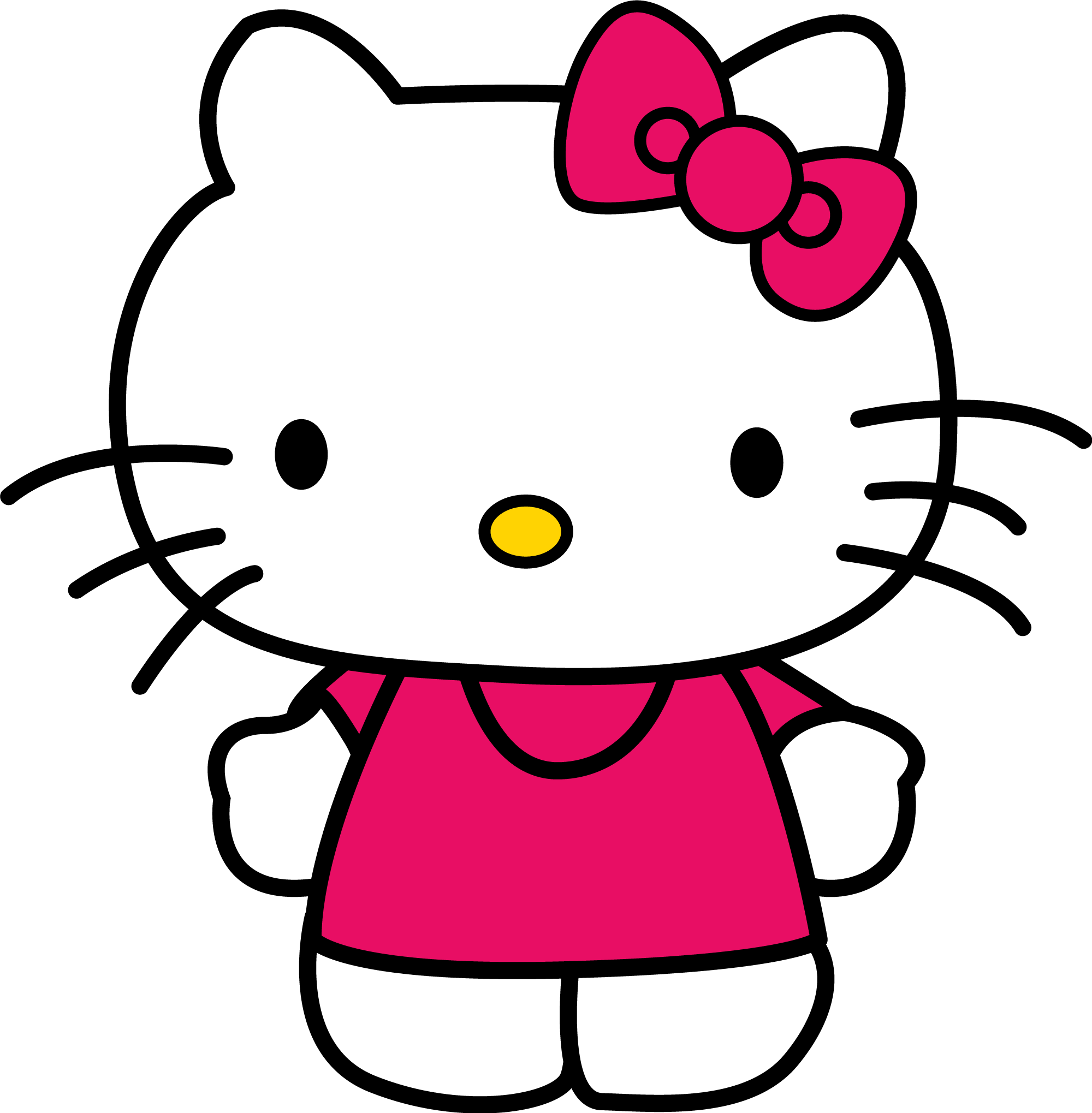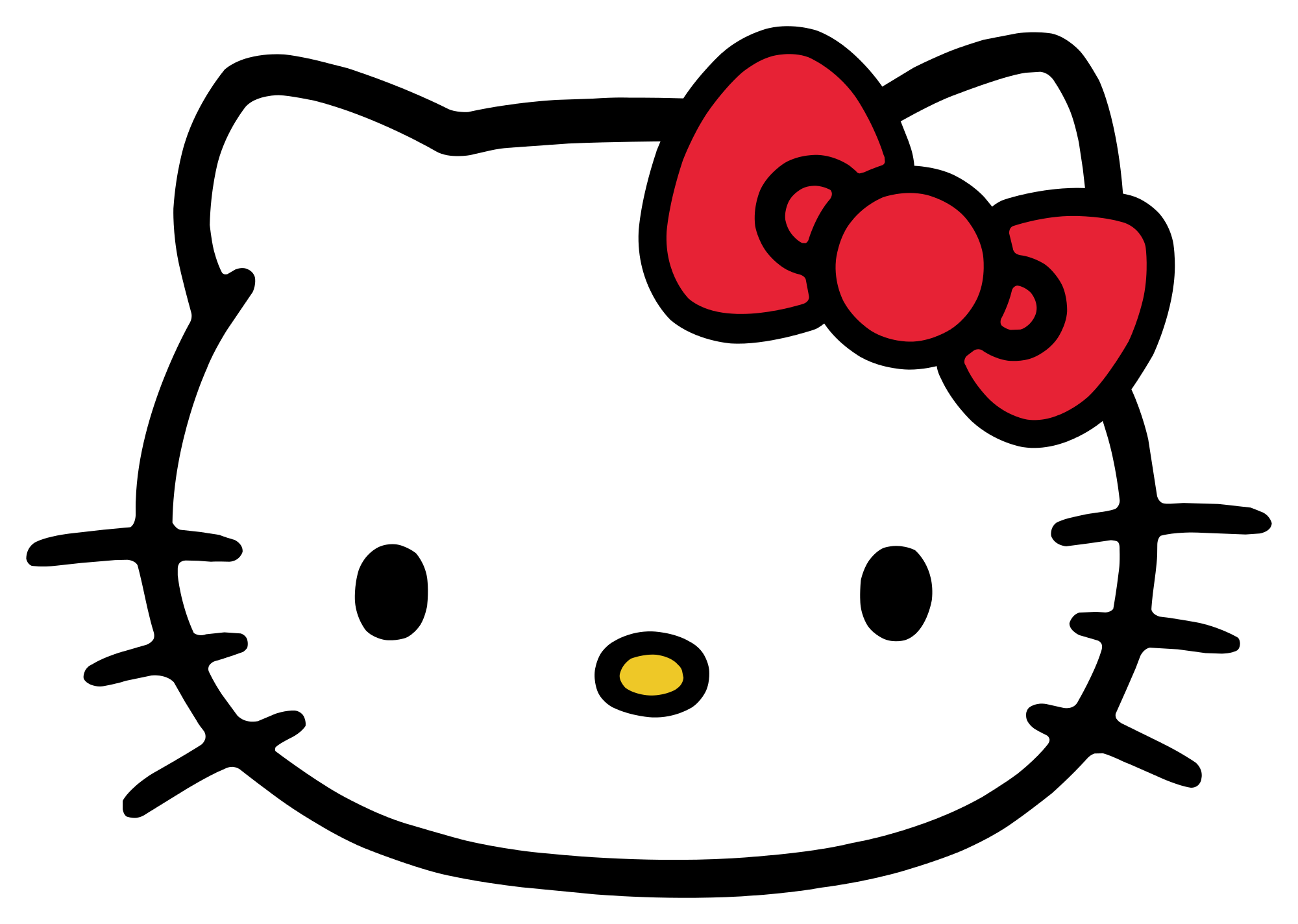Discover the origins of Hello Kitty and the fascinating journey behind one of the most iconic characters in the world. This article explores the history, milestones, and cultural impact of Hello Kitty, ensuring you have all the answers to your questions.
Hello Kitty is more than just a cute character; it has become a global phenomenon that transcends generations. Since its inception, Hello Kitty has captured the hearts of millions worldwide, making it an enduring symbol of pop culture.
In this article, we will delve into the history of Hello Kitty, exploring when it was founded and the events that shaped its rise to fame. Whether you're a fan or simply curious about this beloved character, this guide will provide you with everything you need to know.
Read also:Emmanuelle Chriqui As Sloan In Entourage A Comprehensive Guide
Table of Contents
- When Was Hello Kitty Founded?
- Biography of Hello Kitty
- Sanrio: The Company Behind Hello Kitty
- The Design Evolution of Hello Kitty
- Key Milestones in Hello Kitty's History
- The Global Popularity of Hello Kitty
- Hello Kitty Products and Merchandise
- Cultural Impact of Hello Kitty
- The Future of Hello Kitty
- FAQs About Hello Kitty
- Conclusion
When Was Hello Kitty Founded?
Hello Kitty was founded on November 1, 1974. This iconic character was created by the Japanese company Sanrio, which sought to introduce a new mascot that would appeal to a global audience. Hello Kitty was designed as a simple yet endearing character, featuring a white cat with a red bow and no mouth. This unique design choice has contributed to its universal appeal.
Sanrio's decision to launch Hello Kitty came at a time when Japan was experiencing a cultural shift towards kawaii (cuteness) culture. The character quickly resonated with consumers, particularly young girls, and soon became a symbol of innocence and joy.
Why Was Hello Kitty Created?
Hello Kitty was created to fill a gap in the market for cute and approachable mascots. Sanrio aimed to create a character that would appeal to a wide range of audiences, regardless of age, gender, or nationality. The company believed that Hello Kitty's design, which was inspired by British culture and childhood nostalgia, would help it stand out in a crowded market.
Biography of Hello Kitty
Hello Kitty is not just a character; she has a rich backstory and personality that adds depth to her appeal. Below is a detailed biography of Hello Kitty, including her fictional life and background:
Hello Kitty's Personal Information
| Attribute | Details |
|---|---|
| Name | Hello Kitty |
| Birthdate | November 1, 1974 |
| Place of Birth | London, England (fictional) |
| Age | 5 years old |
| Family | Mommy Cat, Daddy Cat, and her twin sister Mimmy |
| Hobbies | Traveling, baking cookies, and making new friends |
Sanrio: The Company Behind Hello Kitty
Sanrio, founded in 1960 by Shintaro Tsuji, is the company responsible for creating Hello Kitty. Originally a silk wholesaler, Sanrio transitioned into designing and manufacturing character goods, with Hello Kitty being one of its most successful creations. The company has expanded its reach globally, with offices and partnerships in various countries.
Sanrio's commitment to creativity and innovation has allowed Hello Kitty to remain relevant for nearly five decades. The company continuously updates its product lines and collaborates with other brands to keep the character fresh and exciting for new generations.
Read also:Kokomo Taxis Your Ultimate Guide To Reliable And Comfortable Transportation
How Sanrio Revolutionized Character Merchandising
Sanrio pioneered the concept of character merchandising by creating lovable mascots that could be used across various products. This approach allowed the company to diversify its offerings while maintaining a consistent brand image. Hello Kitty, in particular, has been instrumental in this strategy, appearing on everything from stationery to high-end fashion items.
The Design Evolution of Hello Kitty
Hello Kitty's design has undergone several changes since its inception in 1974. Initially, the character was featured on a vinyl coin purse, with a simple design that included a red bow and no mouth. Over the years, Sanrio has introduced variations of Hello Kitty, including different colors, outfits, and accessories, while maintaining the core elements that define the character.
Some notable design changes include the introduction of themed versions of Hello Kitty, such as the "Gold Crown" design for special occasions and the "Vintage" collection inspired by retro aesthetics. These variations have helped keep Hello Kitty relevant and appealing to diverse audiences.
Why Does Hello Kitty Lack a Mouth?
Hello Kitty's lack of a mouth is a deliberate design choice made by Sanrio. The company believed that omitting a mouth would allow fans to project their own emotions and personalities onto the character. This decision has contributed to Hello Kitty's universal appeal, as it transcends cultural and linguistic barriers.
Key Milestones in Hello Kitty's History
Hello Kitty's journey from a small vinyl coin purse to a global phenomenon is filled with significant milestones. Below are some of the most notable events in the character's history:
- 1974: Hello Kitty is officially launched by Sanrio.
- 1980s: Hello Kitty gains popularity in the United States and Europe.
- 1990s: The character expands into fashion and lifestyle products.
- 2000s: Hello Kitty collaborates with high-end fashion brands, including Moschino and Desigual.
- 2014: Hello Kitty celebrates its 40th anniversary with global events and special collections.
The Impact of Global Collaborations
Sanrio's partnerships with international brands have played a crucial role in expanding Hello Kitty's reach. By collaborating with companies in fashion, technology, and entertainment, the character has been able to appeal to new demographics and markets. These collaborations have also helped maintain Hello Kitty's relevance in an ever-changing world.
The Global Popularity of Hello Kitty
Hello Kitty's popularity extends far beyond Japan, with fans in every corner of the globe. The character's universal appeal lies in its ability to evoke feelings of nostalgia, happiness, and innocence. Whether through merchandise, theme parks, or social media, Hello Kitty continues to captivate audiences of all ages.
According to a report by Statista, Hello Kitty merchandise generated over $8 billion in revenue in 2021, making it one of the most successful character brands in the world. This figure underscores the enduring popularity of the character and its impact on global culture.
How Hello Kitty Connects with Fans
Hello Kitty's success can be attributed to its ability to connect with fans on a personal level. Through social media platforms like Instagram and TikTok, Sanrio engages with its audience, sharing behind-the-scenes content and encouraging user-generated content. This interactive approach has helped build a loyal community of fans who feel a strong connection to the character.
Hello Kitty Products and Merchandise
Hello Kitty products span a wide range of categories, from everyday items like stationery and clothing to luxury goods such as jewelry and handbags. Sanrio collaborates with various brands to create exclusive collections that cater to different tastes and preferences.
Some popular Hello Kitty products include:
- Stationery sets
- Fashion accessories
- Home decor items
- Electronics and gadgets
- Food and beverage collaborations
The Rise of Limited-Edition Items
Sanrio frequently releases limited-edition Hello Kitty items to create excitement and drive demand. These exclusive products often feature unique designs or collaborations with renowned brands, making them highly sought after by collectors. This strategy has proven effective in maintaining fan engagement and driving sales.
Cultural Impact of Hello Kitty
Hello Kitty has become more than just a character; it represents a cultural movement that celebrates cuteness, kindness, and creativity. The character has influenced various aspects of modern culture, from fashion and art to music and film.
In recent years, Hello Kitty has been embraced by the art world, with artists incorporating the character into their works to explore themes of identity, consumerism, and globalization. This fusion of pop culture and fine art has further cemented Hello Kitty's status as a cultural icon.
Hello Kitty's Role in Promoting Kindness
Sanrio actively promotes kindness and positivity through its Hello Kitty initiatives. The company supports various charitable causes and encourages fans to spread joy and compassion in their communities. This commitment to social responsibility aligns with the character's core values of friendship and empathy.
The Future of Hello Kitty
As Hello Kitty enters its fifth decade, Sanrio remains committed to innovating and expanding the character's reach. The company plans to introduce new product lines, digital experiences, and collaborations that will appeal to both existing fans and newcomers.
With advancements in technology, Sanrio is exploring virtual and augmented reality experiences to enhance the Hello Kitty universe. These innovations aim to create immersive interactions that will further engage fans and deepen their connection to the character.
What Lies Ahead for Hello Kitty?
The future of Hello Kitty looks bright, with endless possibilities for growth and expansion. By staying true to its core values while embracing new trends and technologies, the character is poised to continue its legacy as a beloved global icon for generations to come.
FAQs About Hello Kitty
1. Is Hello Kitty a Cat or a Person?
Hello Kitty is officially classified as a character who is a white cat. However, Sanrio describes her as a "little girl" who enjoys traveling and baking cookies.
2. Why Was Hello Kitty Created?
Hello Kitty was created to fill a gap in the market for cute and approachable mascots. Sanrio aimed to design a character that would appeal to a wide range of audiences, regardless of age, gender, or nationality.
3. How Many Hello Kitty Products Exist?
Sanrio produces thousands of Hello Kitty products across various categories, including stationery, clothing, home decor, and electronics. The exact number of products is constantly changing due to new releases and collaborations.
4. What Makes Hello Kitty Unique?
Hello Kitty's unique design, including her lack of a mouth and distinctive red bow, sets her apart from other characters. Additionally, her universal appeal and ability to connect with fans on a personal level contribute to her enduring popularity.
Conclusion
Hello Kitty's journey from its founding in 1974 to becoming a global phenomenon is a testament to its timeless appeal and cultural significance. By staying true to its roots while embracing innovation, Hello Kitty has captured the hearts of millions worldwide. Whether through merchandise, collaborations, or charitable initiatives, the character continues to inspire joy and kindness in people of all ages.
We invite you to share your thoughts and experiences with Hello Kitty in the comments below. For more fascinating insights into pop culture and lifestyle, explore our other articles and stay connected with us on social media.


